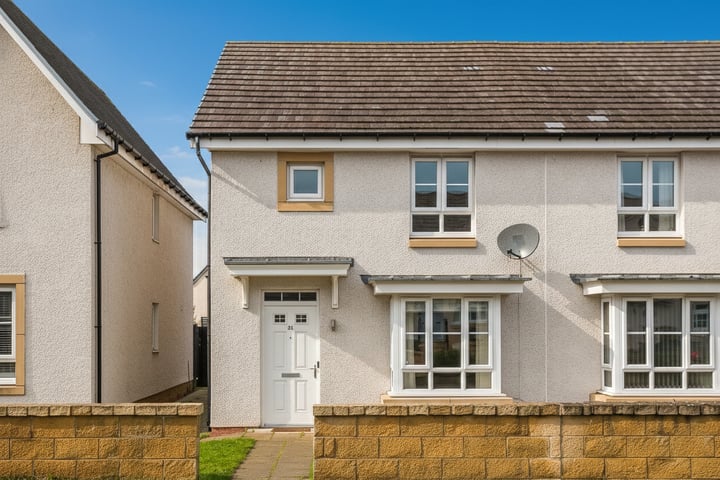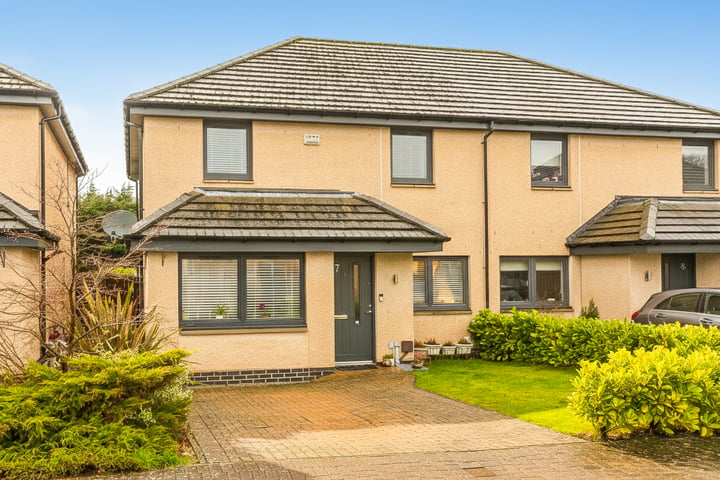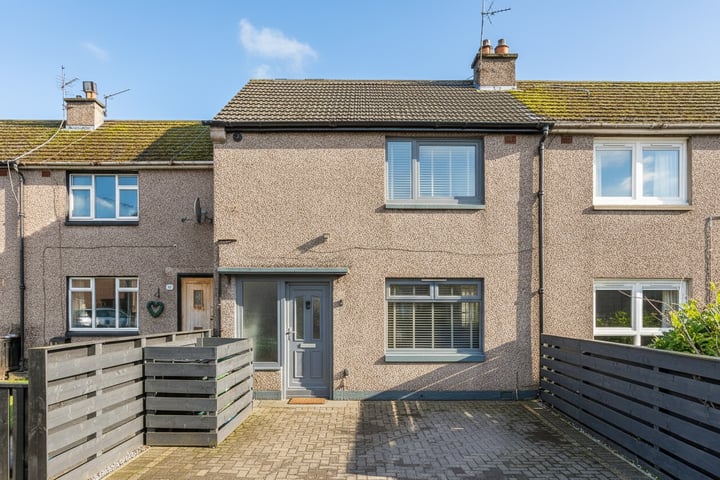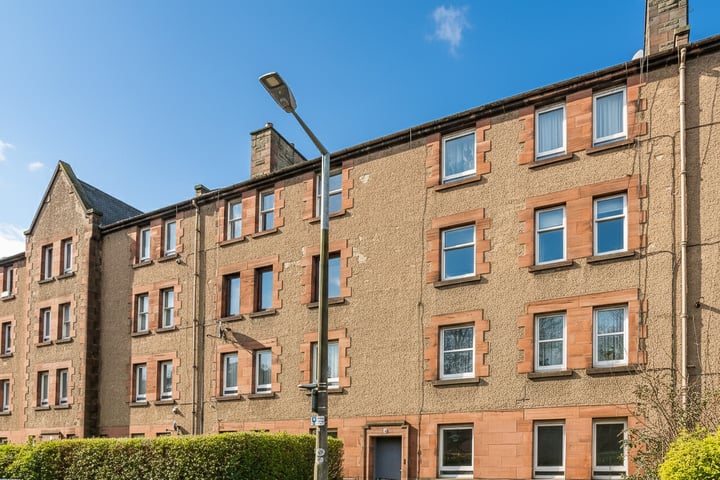The property market can be overwhelming, filled with jargon and complicated processes guaranteed to befuddle first-time buyers and seasoned veterans alike. Our detailed Property Buying Guide aims to demystify the industry to give you the tools to confidently source and purchase your next dream home (and maybe even save some money, too).
In the latest blog, we’ll discuss everything buyers need to know about house viewings – from what you should pay attention to in the property to key considerations to keep in mind before the viewing and questions to ask the seller while you’re touring your potential new place. Since most buyers decide whether to buy a home after less than an hour inside, it’s essential to go to your house viewing prepared to get the most out of the process. So, let’s get into it.
What is a House Viewing?
Once you’ve found a home you’re interested in you can speak with the estate agent handling the sale to arrange a house viewing, where you’ll have the opportunity to look around the property. A house viewing is your chance to see the place up close and personal, ask any questions you may have and assess its condition for yourself – before you commit to buying.
Open Viewings
While house viewings are usually conducted on a 1-2-1 basis at an arranged time between the buyer and estate agent, open viewings are popular in many parts of Scotland and allow for any interested parties to tour the house at the same time. While this means you’re unlikely to get the place to yourself, it’s helpful if you’re not sure how much you like the property as it allows you to pop in (and out) with ease if you decide it’s not for you.
How to Arrange a House Viewing
Typically, you should contact the estate agent handling the property to request a viewing. You can do this via phone, email or through an agent’s website or property portal. In some cases, more than one agent will be marketing the home – simply choose one and get in touch to organise your viewing.
In Scotland, it’s common for sellers to conduct their house viewings which can be helpful if you have any questions during the tour. Whether they are overseeing the viewing or not, however, the estate agent handling the sale will usually manage all communication and arrange your appointment.
What to Look Out For: A Property Viewings Checklist
Below you’ll find a list of our top things to look out for (both inside and outside the property) during a house viewing. While this list isn’t exhaustive, it should give you a good idea of the main things to assess and what questions to ask the seller or estate agent. For a handy document you can print out and take with you, download the property viewing checklist from Which?.
Inside the Property
- Size – consider whether the rooms are big enough for your furniture and if you can, measure your possessions before you go to ensure everything will fit in the property.
- Walls & floors – examine the walls and floors for any cracks or damage (if you can fit a 10p piece into a crack it may be a sign of subsidence).
- Windows – test windows to ensure they open easily and the locks work and assess whether they have good insulation (such as double glazing) as this can affect your home’s energy performance and cost you more in the long run. Remember, you’ll find more information about this in the property’s Energy Performance Certificate (EPC) in the Home Report.
- Taps, showers & baths – make sure the taps throughout the property work and test the water pressure. Turn on the tap and count how long it takes for hot water to come through. Try the toilet’s flush to ensure it’s not faulty.
- Power – try out the lights in each room and check the plug sockets to see if they work. A simple way to do this is to bring your phone charger with you.
- Damp – keep your eyes (and nose) peeled for any signs of dampness, especially in small, dark and enclosed spaces like storage areas.
- Appliances & white goods – test any appliances that are included with the property to ensure they’re in good working order.
- Heating – ask the seller or agent how old the boiler is and be sure to poke your head in the cupboard to see it for yourself. Ask how long ago it was serviced.
- Storage space – make a note of all cupboards, closets and storage areas in the house. Is there enough storage to fit all your belongings?
- Fuse box – check the fuse box and ask the seller or agent when it was last serviced.
- Mobile, wifi & TV connections – pull out your phone and check the strength of your signal while in the property. Ask whether fibre broadband is available in the area (many providers have handy maps on their websites which allow you to check coverage, as well as potential wifi speeds, for that location). Ensure there are working TV and phone aerial plugs in an accessible place.
Outside the Property
- The local area – research the local area to make sure it’s somewhere you want to live. Consider public transport links, amenities, schooling (if applicable), traffic and whether the property is near useful shops or (potentially) loud pubs/bars.
- Garden – assess the garden’s placement to see how much sun you’re likely to get (is it south-facing or north-facing?). Consider whether the garden’s size and upkeep needs are manageable for you.
- Roof & brickwork – examine the home’s brickwork and roof to get an idea of its general condition. Are there any broken tiles or cracks?
- Gutters & drains – the health of a property’s gutters are essential as any issues can lead to serious problems like damp. Look for cracks, leaks and dark patches on the brickwork. Check the drains to see whether they are clogged up.
- Parking – if you own a car, consider the parking situation at the property. Is the garage big enough or, if there’s no dedicated parking space, is there room on the street to ensure you’ll get a space every night? You can always revisit the area at a later date to get a good idea of traffic.
Remember: you’ll find a lot of this information in the Home Report, but it’s important to see the property’s condition first-hand, ask follow-up questions where necessary and ensure you’re clear about what work may be needed in your potential new place before deciding to submit an offer.
4 Tips for a Successful Viewing
1. Slow Your Roll: Take Your Time While Viewing the Property
With so much at stake, it’s essential to ensure you’re not rushing through the process. Instead, take your time to truly consider the property and whether it’s the right fit for you and your family. We recommend at least 30 minutes so you can be thorough in your assessment and ask any necessary questions.
In today’s property market competition is fierce, especially in big cities, but the risks associated with choosing the wrong property outweigh the benefits of a quick sale. If you can take time off from your job, consider using this to your advantage and scheduling your viewings during the working week to get ahead of other buyers.
2. Two Heads Are Better Than One: Take Someone with You
If you can, ask someone you trust to accompany you to act as a second pair of eyes. After the viewing, spend some time collating the knowledge you both gathered and ask them to give you their honest opinion about the property – oftentimes, they’ll have noticed something you didn’t.
3. Get Snap Happy: Take Lots of Videos & Pictures
It’s difficult to accurately remember everything you’ve seen after your viewing, so taking photos and videos is a helpful way to decide whether the property is right for you once you’ve had the chance to process what you’ve seen – especially if you’re viewing multiple properties. Ask permission before you begin snapping and be sure to be thorough in your documenting.
4. Last (But Not Least)… Don’t Be Afraid to Ask Questions
It’s crucial to take advantage of the property viewing and ask anything that’s on your mind. Sellers and estate agents may not be forthcoming with information unless prompted so it’s important not to let them dictate the nature of the viewing. Make a list of everything you want to ask before you go and don’t be afraid to ply them with questions to ensure you get everything you need. And remember, you can always ask follow-up questions by email or telephone after the viewing is finished.
So, You’ve Viewed Your Dream Home. What’s Next?
If you’ve attended a house viewing and found the perfect place for you, the next step in your buying journey is to submit a note of interest to the seller’s team. Our next instalment of the Property Buying Guide we will cover just that – detailing what a note of interest is and how to submit one as well as essential information like closing dates and official offers. See you there!
Thinking of Selling Your Property?
If you’re thinking of selling your property, our team of experts is here to help you get the best possible price in the quickest possible time. With decades of experience under our belt, we’ve seen all possible market conditions over the years and are perfectly placed to help you navigate the current property landscape. Get in touch today!
Fill in our free online home valuation form here
Call us on 0345 646 0208 (Option 1)
or email [email protected] to organise a free valuation of your home or to get a full, transparent breakdown of the costs of selling your home.
Thinking of Buying?
Our specialist Purchasing Team helps thousands of buyers every year to get the best deal on their next dream home, while our friendly and expert lawyers will guide you step-by-step through the Scottish buying process until you have the keys in your hand.
Get a quote for buying online here
Call us on 0345 646 0208 (Option 2)
or email [email protected], and we’ll be delighted to help.







Leave a Reply